The Ten Commandments, sometimes called the Ten Commandments of the God Israel, are an essential part of the Jewish religion and are written in the Holy Torah. The Ten Commandments are one of the primary components of the Jewish education curriculum from birth to adulthood. While the commandment is not as important to Jewish life as it is to many other religions, the Ten Commandments are fundamental to the beliefs and practices of the Jewish people.
The Ten Commandments form the very backbone of Jewish law and tradition and create the basis for the entire Jewish lifestyle. The Creator has handed down these commandments through His chosen people, the Israelites. The commandments concern everything from dietary and ritual observances to behaviour in prayer and everyday life. These laws were created and specified by the Lord during the Old Testament and have been kept intact since the times of the Judges and Kings. Because they are the fundamental values upon which the Jewish people relied for thousands of years, the Ten Commandments form the very foundation of the Jewish people’s beliefs and their very lives.
The commandment concerning Mount Sinai is one of the most important commandments and probably the most famous. The commandment begins, “Behold, thou shall find a rock in your midst, a source of water; from above earth, mount Sinai.” The idea behind this commandment is that there will be a place or spot on Mount Sinai that will be a safe refuge from the enemy while the Israelites rest on the Mount. In fact, at the time of the tablet tablets of the Bible, Mount Sinai was identified as a place of refuge because it was the location of the Temple that was destroyed in 70 A.D., the exact date the commandments were given.
When translating Hebrew into English, the word translated into brackets is mount, and the short form of the name Mount Sinai is Sinai. As an English word, Sinai means “a mountain peak.” So, the commandment begins, “Behold, thou shall find a rock in thy midst, a source of water; from above the earth, mount Sinai.” It does not say, “there,” but rather, “in thy midst.”
To make the translation easy to understand, the ten commandments of the bible can be interpreted as the compass points on the map of the world. Each of the compass direction’s points to a specific location. The direction of the Ten Commandments is also written in a different colour, depending on the commandments being translated. For instance, the direction to the south is indicated by a blue commandment scroll. Therefore, every time a new commandment is being translated into English from the Hebrew word, the meaning of the Hebrew word changes, but not the meaning of the surrounding text.
It may seem easy to translate the commandments into a short form of the English word, “I am,” but the ten commandments of the bible are much more complex than that. To understand the meaning of the entire commandment, we must take into account the numeric pattern it follows. Each letter of the alphabet represents one of the ten commandments. The short form for number one is “I am a dumb ox.”
The ten Commandments of the Holy Bible start with the words, “In the name of the Lord, you are saved.” If we read this passage carefully, we will notice that the first word before the first comma is written, “in the name of the Lord,” which is a capital letter. The next word after is written in the same manner, but this time, it is not capitalized. The next word after that is “you,” indicating that we are to believe that we are saved by faith.
The ten commandments are divided into two parts, the first part is the Ten Commandments of the Old Testament, and the second part is the Ten Commandments of the New Testament. Most modern interpreters do not correctly interpret the passages. They have the tendency to apply the two different translations to the same passages and confusing the meaning of the passage. For example, they apply the words “Moses” and “Exodus” to the same events, but the original passage is written; differently. The former is written in Hebrew, while the latter is written in Greek. Therefore, the meaning of both words is the same, but when translated, the original passage can be misinterpreted by most modern translators.
What are the Ten Commandments in plain terms?
The Ten Commandments have been around for quite a while but are still used by some as their fundamental or foundation of belief in life. Some say the Ten Commandments were given to man by God himself and they have transcended through time to hold various forms of significance across cultures and belief systems. Many people believe that the Ten Commandments are the foundation of all religion and believe that without them there can be no religion.
There is much debate on whether the Ten Commandments were given to mankind by the Creator or whether man simply wrote down them and forgot about them later. The argument for the latter seems to be strengthened by the fact that many if not all religions are based on the teachings of the Ten Commandments. The majority of people will agree that the Ten Commandments certainly hold religious significance and are fundamental to our understanding of morality. The simple truth is that the Ten Commandments reflect a deep insight into the deepest aspects of religious enlightenment. It was through the commandments that the depth of religious beliefs were revealed. The following are the Ten Commandments in very basic terms as they have been taught throughout time.
First, we have the commandment to love the Lord thyself. This commandment is one of the most important and is often the first one many follow. For the majority of mankind, the concept of “submit to the Lord” means you submit to his rules, regulations, and timetable. This involves your submission to his laws, his lifestyle, his way of doing things and above all, his word that he is the One who made and will save you from sin and failure. No other source besides the Lord can give you the comfort, relief, and peace you need to live righteously.
Second, we have the commandment to forgive thee neighbor when he hath done thee wrong. Forgiveness of whom is owed is a commandment to obey. You owe no man an explanation whatsoever, until you have first met with him and had spoken unto him freely. On the sabbath day, you are to fulfill this commandment by forgiving those who have sinned against you. Forgiveness is one of the greatest acts of love for God, which we can do on the day of the sabbath.
Third, we have the commandment to love our enemies and to be kind to them. Loving those who are different from ourselves, not only puts us in touch with God’s spirit but also allows us to draw closer to men and women who are less fortunate than ourselves. This commandment encompasses a multitude of values and acts that are to be performed on the sabbath day. Love your enemies and be kind to those who have ill intention towards you. Forging good relationships with those whom you wish well, also make you worthy of being loved by these same people.
Lastly, we have the commandment to be diligent in prayer, which means that we should pray continually throughout the day, no matter what else is going on. Prayer enchants our mind, soul, and body. It instills confidence in us and increases our knowledge of God. Therefore, while on the sabbath day, make it a point to remember to keep in mind these commandments and they will surely guide you and help you throughout the year.
What are the Ten Commandments arranged in Chronological Order from 1 - 10?
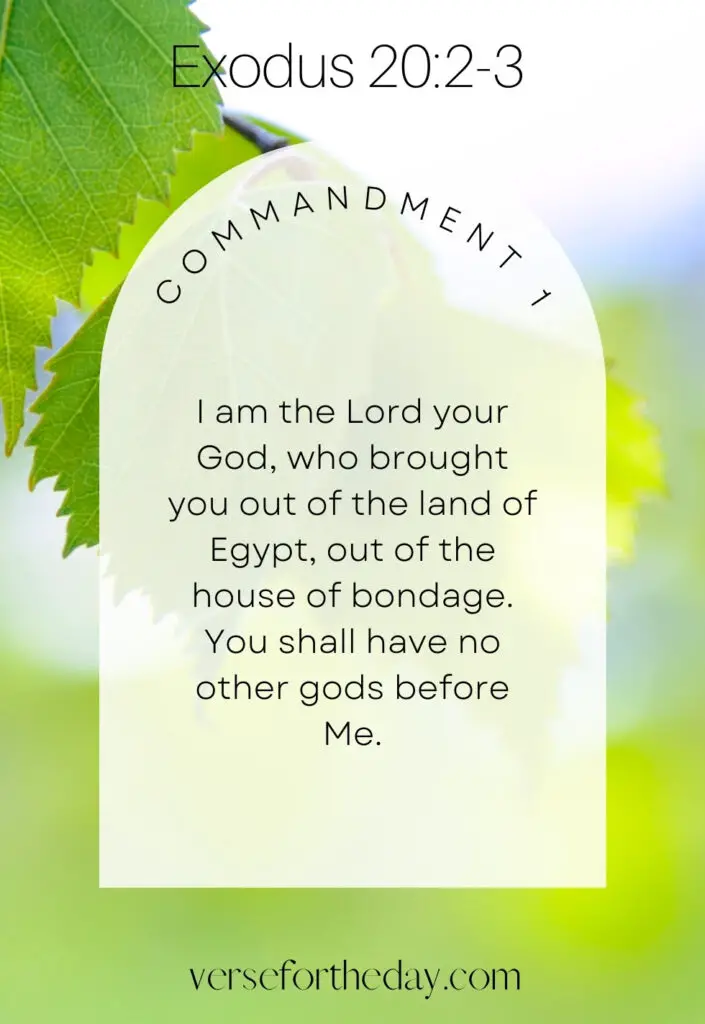
I am the Lord thy God, which have brought thee out of the land of Egypt, out of the house of bondage. Thou shalt have no other gods before me.
Exodus 20:2-3 KJV
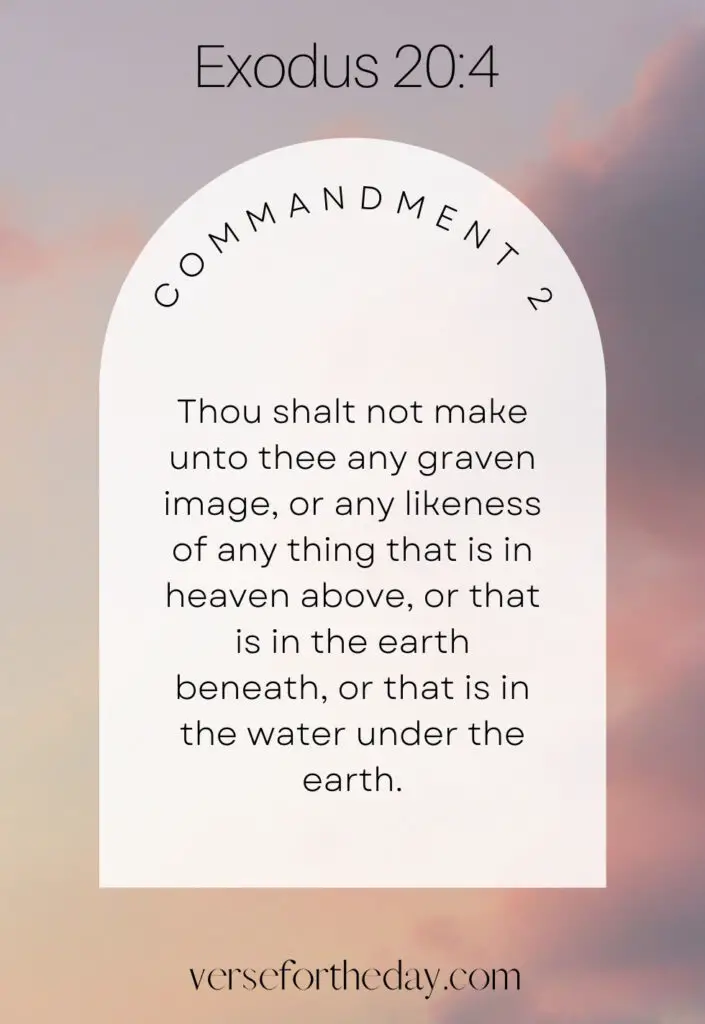
Thou shalt not make unto thee any graven image, or any likeness of any thing that is in heaven above, or that is in the earth beneath, or that is in the water under the earth.
Exodus 20:4 KJV

Thou shalt not take the name of the Lord thy God in vain; for the Lord will not hold him guiltless that taketh his name in vain.
Exodus 20:7 KJV
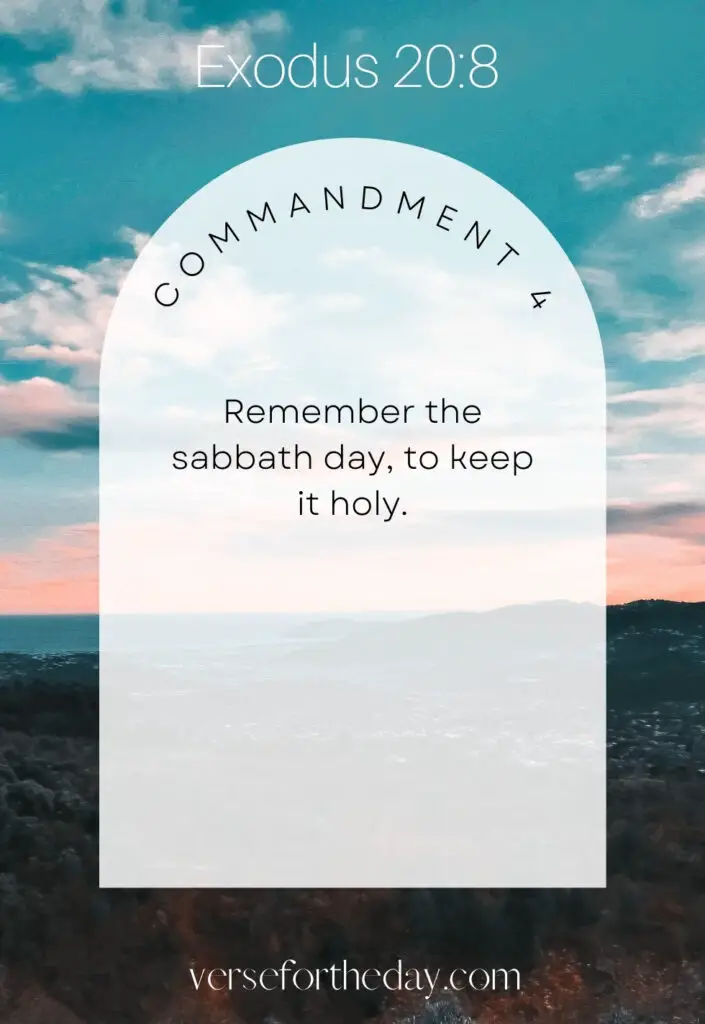
Remember the sabbath day, to keep it holy.
Exodus 20:8 KJV

Honour thy father and thy mother: that thy days may be long upon the land which the Lord thy God giveth thee.
Exodus 20:12 KJV

Thou shalt not kill.
Exodus 20:13 KJV
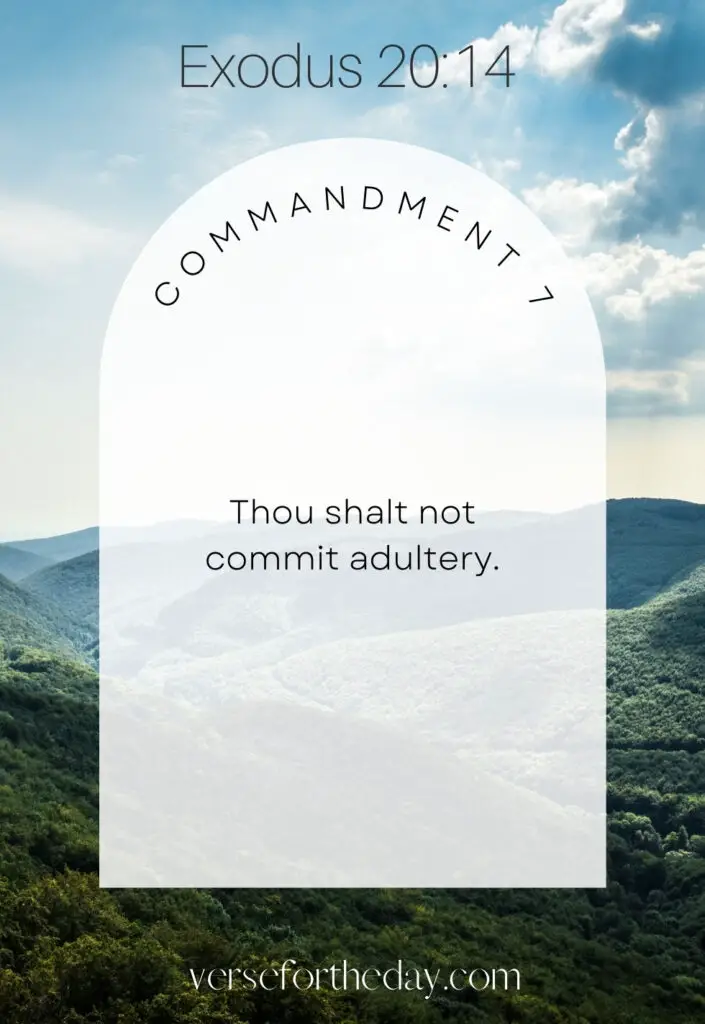
Thou shalt not commit adultery.
Exodus 20:14 KJV

Thou shalt not steal.
Exodus 20:15 KJV
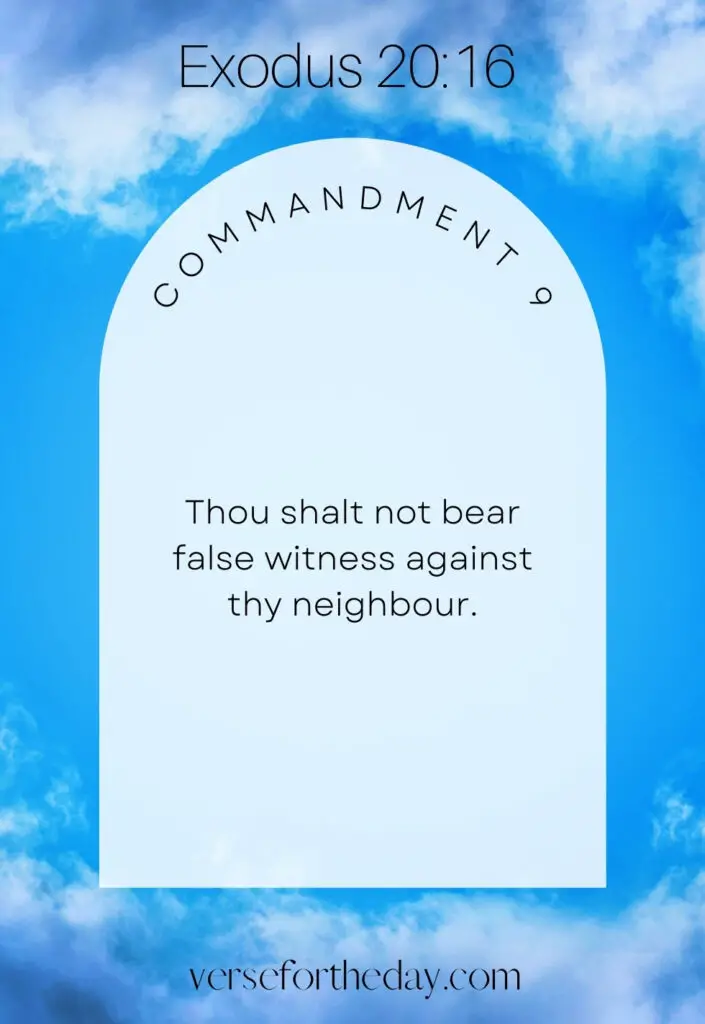
Thou shalt not bear false witness against thy neighbour.
Exodus 20:16 KJV
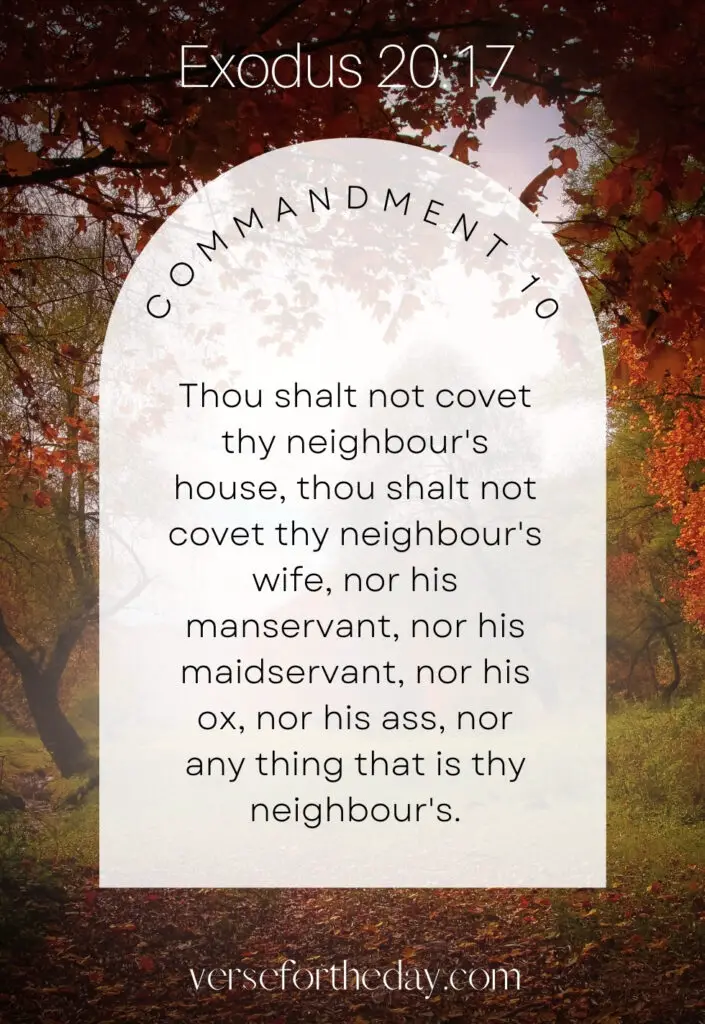
Thou shalt not covet thy neighbour's house, thou shalt not covet thy neighbour's wife, nor his manservant, nor his maidservant, nor his ox, nor his ass, nor any thing that is thy neighbour's.
Exodus 20:17 KJV

